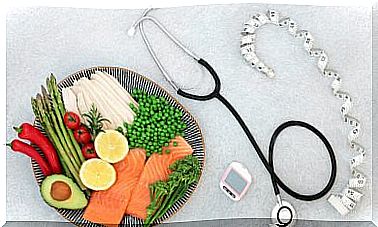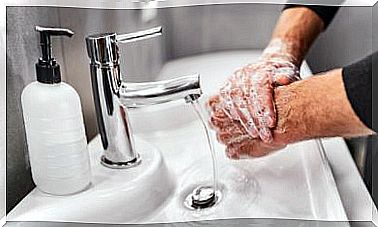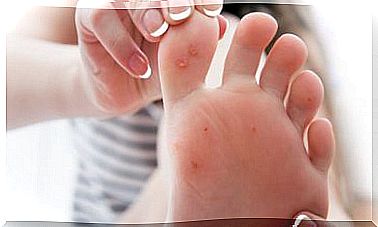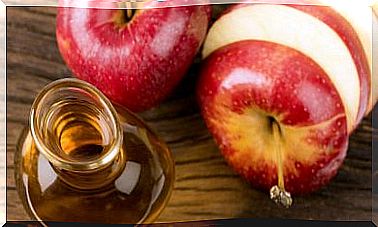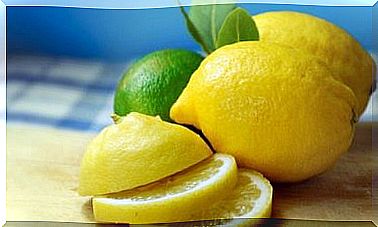Morning Coffee Or Afternoon Tea Could Benefit Your Liver
I like so much to start the day with the taste of coffee in my mouth, that first cup gives me the impulse to face the difficulties of each day. The same thing happens in the middle of the afternoon, when a delicious and hot tea restores my strength and spirits, after so much work. What a shame that my habits are detrimental to my health! truth?
Well, that’s how I thought until a few days ago when, after doing some research, I discovered that I was wrong. Turns out there is good news for those like me who enjoy tea and coffee. They do not believe me? Well, keep reading and I will explain in this article how morning coffee or afternoon tea could benefit the liver.
Caffeine: myths and facts
It is no secret that the relationship between human health and the ingestion of coffee and tea has been quite a controversial topic in recent decades, since these products contain a high concentration of caffeine, an alkaloid from the group of xanthines that has effects stimulants on the autonomic nervous system and the heart.
Caffeine can also be found in yerba mate, guarana berries, cocoa, kola nut, energy drinks and in numerous commonly used medications.
Almost everyone knows that coffee stimulates wakefulness and resistance to fatigue, as well as being a powerful vasodilator, but what is real and uncertain in everything that is discussed on this topic?
The good news is that caffeine has been scientifically proven to be helpful in treating certain conditions, such as headaches (which is why, as stated in this study, many medications contain it), bronchial asthma, and gallstones ( especially in women, according to this research).
But, do not be so happy, because consumed in excess can be harmful to our health, causing dependence, headaches, cardiac arrhythmia, insomnia and anxiety.
So, you may wonder, is drinking coffee and tea good or bad? Well, it all depends on the person and the amount consumed daily. According to specialists, the healthy intake of coffee is 3 or 4 8-ounce cups a day; about tea, the amount is similar, although it may vary depending on the variety of tea chosen.

However, some people are more vulnerable to caffeine than the rest and must drink it in very small amounts or eliminate it completely from their diet. For example, it happens with pregnant women and those people who suffer from cardiovascular problems, high blood pressure and migraine, among others.
How the morning cup of coffee and the tea of the three can benefit your liver
An international team of researchers led by scientists from Duke University (United States), concluded that consuming the right amount of tea and coffee helps keep our liver healthy.
According to experiments carried out on animals and cell cultures, caffeine stimulates the metabolism of lipids stored in liver cells, which is vitally important to avoid the condition of fatty liver (also known as nonalcoholic hepatic steatosis) that is linked with chronic inflammatory processes, cirrhosis, diabetes and even cancer.
According to the authors, the consumption of four cups of coffee a day could be related to the control of obesity and the reduction of adipose tissue. These researchers think that progress in this line of study could lead to the development of drugs that act like caffeine but eliminating its adverse effects.
The reality is that much-criticized caffeine could be good for keeping us young, vital, and healthy. Therefore, starting your day with coffee or tea helps not only your liver, but the rest of your body to burn the extra fat. This, together with a balanced diet, will make you a much more vigorous and healthy person.
Other benefits and harms of coffee and tea

Many have been and continue to be the investigations that are carried out on the subject of coffee, tea and health, and we hope that in the coming years they will advance enough to show us all the benefits that the consumption of these products can bring to our lives. , and also so that we learn to use them correctly.
For now, in addition to avoiding fatty liver, we already know that consuming the right dose of caffeine can:
- Help in the treatment of certain types of headache, bronchial asthma and biliary colic.
- Contribute to the prevention of gallstone formation, mainly in women.
- Improve cognitive functions and may lower your risk of Alzheimer’s disease and Parkinson’s disease.
- Reduce the risk of diabetes, according to specialized sources.
- Protect the heart and lower the risk of heart disease.
- Stimulate metabolism, although its consumption could also lead to greater oxidation of fats, according to studies.
- Have antioxidant effects.
It is wonderful to know all the properties of coffee and tea, isn’t it? But we cannot trust ourselves, everything in excess is bad and drinking too much tea or coffee can bring us very serious health problems, excessive consumption (more than 4 cups a day) can cause:
- Headache.
- Cardiac arrhythmia.
- Anxiety, restlessness, trouble sleeping, or insomnia.
- Tremors
- Nausea and vomiting
- Frequent urination
- Problems in pregnancy or breastfeeding ; in pregnancy, the minimum intake of a cup of coffee is considered “potentially safe”, but this should be consulted with the doctor.
- Decreased appetite and hyperstimulation of bowel activity (important in children).
Now we also know the consequences, so we must be very vigilant and, in the event of any allergic reaction such as redness, itching or stomach problems, let’s go immediately to the doctor.
And now the perfect answer
I hope this article has been useful to clarify your doubts regarding caffeine consumption. Now, the next time someone criticizes your morning cup of coffee, you can calmly reply that coffee can help keep your liver healthy.
Main image courtesy of © wikiHow.com
